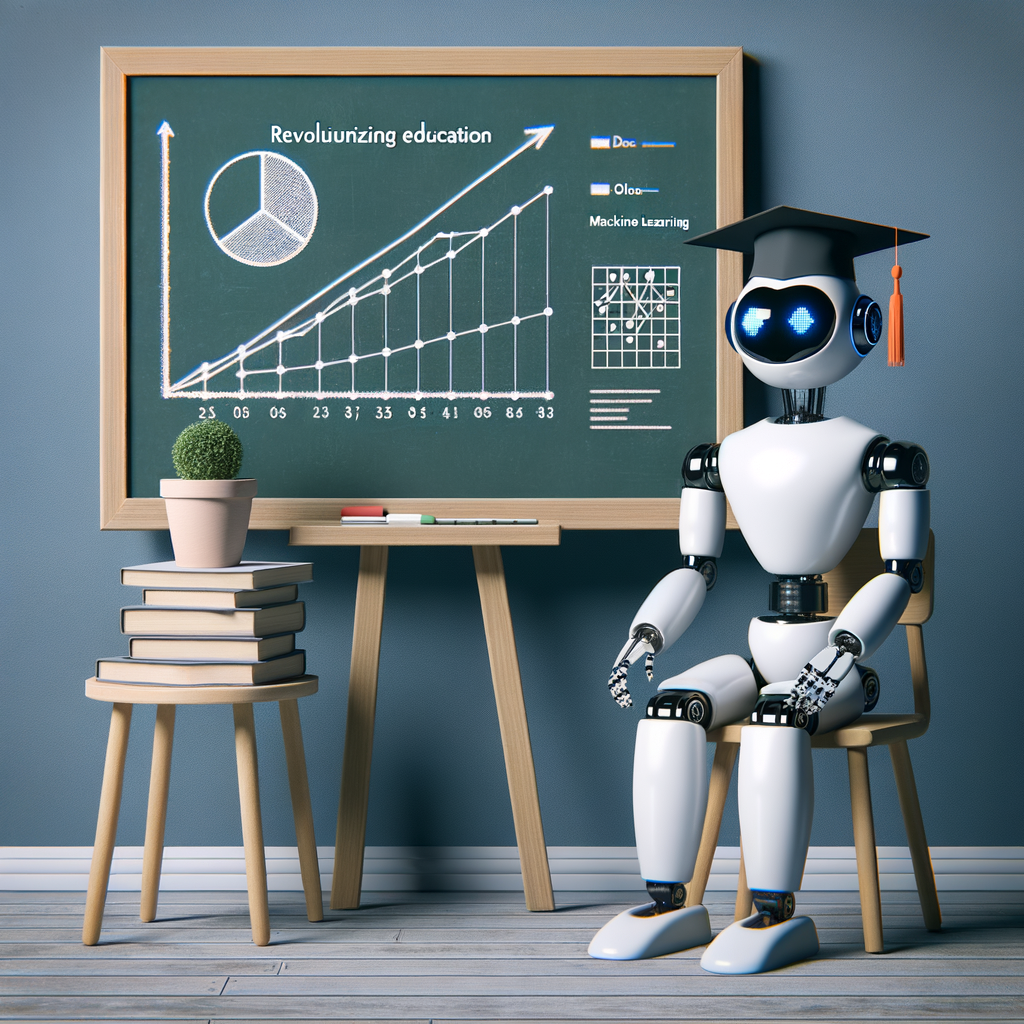
The Next Frontier in AI: Revolutionizing Education with Machine Learning
Explore how machine learning and AI technologies are transforming education from personalized learning experiences to predictive analytics, providing educators with powerful tools to enhance learning outcomes and streamline educational processes. Discover the innovative applications and future potential of AI-driven education systems.
Introduction
Artificial Intelligence (AI) and Machine Learning (ML) have cemented themselves as game-changers across various industries, and now, they're making their way into the realm of education. From personalized learning experiences and intelligent tutoring systems to predictive analytics and administrative automation, AI and ML carry the potential to transform how educators teach, how students learn, and how education systems operate.
The Current Educational Landscape
Before diving into the AI revolution in education, it's essential to understand the current state of educational practices. Traditional teaching methods have dominated the classroom, relying heavily on one-size-fits-all approaches. While effective to some extent, these methods often fail to cater to individual learning paces and styles.
Personalized Learning with AI
Personalized learning is at the forefront of the AI evolution in education. AI systems can analyze students' strengths and weaknesses, learning styles, and preferences to tailor educational content accordingly. This ensures that each student receives materials and suggestions designed to improve their individual educational journey.
Intelligent Tutoring Systems
Intelligent tutoring systems (ITS) leverage AI to provide real-time assistance and feedback to learners. These systems are capable of adapting to the learner's knowledge level, providing exercises that challenge yet support educational growth. The ITS model uses a structured approach to deepen understanding and engagement with complex subjects.
Predictive Analytics and Data Interpretation
With the help of AI, educators can harness predictive analytics to forecast student performance and potential challenges. By analyzing historical data and learning patterns, AI systems can provide educators with actionable insights to preemptively address learning gaps and provide necessary interventions.
Streamlining Administrative Tasks
In the educational landscape, administrative chores can be burdensome. AI enters the scene with tools that can automate grading, schedule management, and even enrollment processes. This enables educators to dedicate more time to teaching and engaging with students rather than being bogged down by paperwork.
Virtual Classrooms and AI
The COVID-19 pandemic accelerated the adoption of virtual classrooms. AI technologies can enhance these platforms through features like auto-transcription, smart attendance tracking, and interactive learning modules, making online learning more effective and accessible.
AI Mentors
Beyond just teaching subjects, AI-powered mentors can assist in developing soft skills and decision-making abilities. These digital mentors analyze conversational data and offer guidance, positioning themselves as companions in a student's educational journey.
Challenges and Ethical Considerations
With every advancement come challenges and ethical concerns. Incorporating AI in education raises questions about data privacy, the digital divide among students, and the potential loss of the human touch. Addressing these issues is crucial in ensuring that AI-driven education promotes inclusivity and fairness.
The Future of AI in Education
The future holds immense promise for AI in education, but it requires collaborative efforts among educators, technologists, and policymakers to unlock its full potential. The focus should revolve around creating adaptive learning environments that foster curiosity, creativity, and critical thinking.
Conclusion
Revolutionizing education with AI and machine learning is not just about integrating new technologies—it's about reimagining how we teach and learn. By prioritizing personalized learning, leveraging predictive analytics, and embracing automation, we move closer to an educational model that prepares students not just for exams, but for life.
Keywords
- AI in Education
- Machine Learning
- Personalized Learning
- Intelligent Tutoring Systems